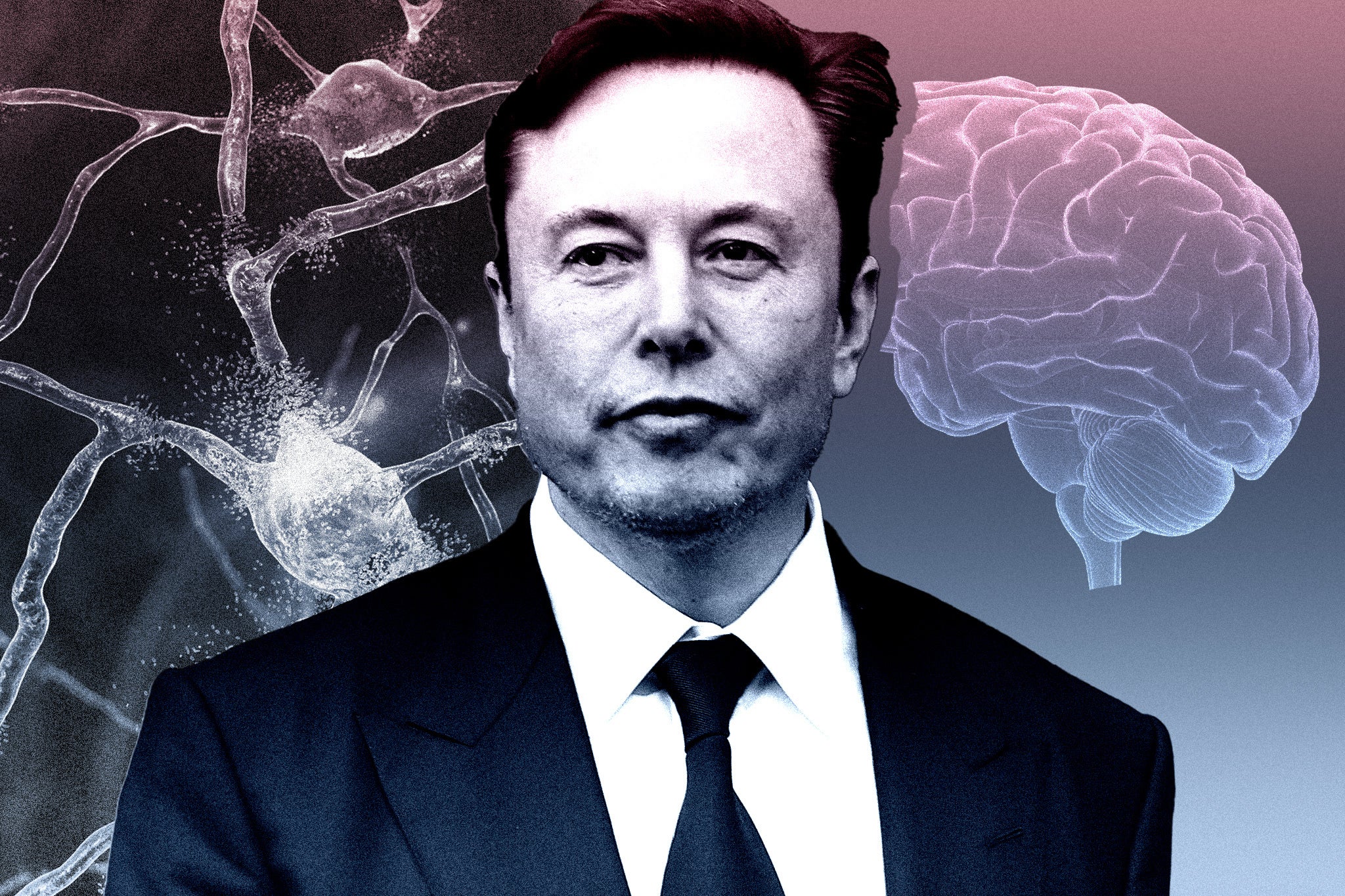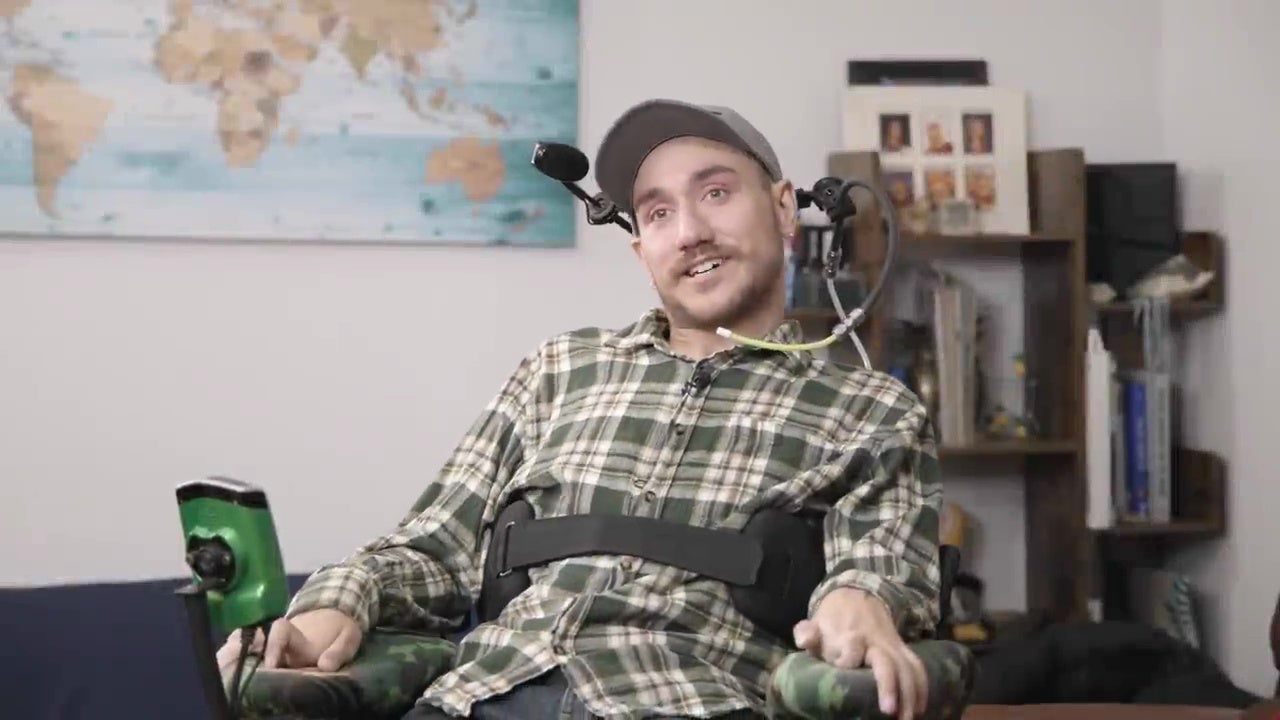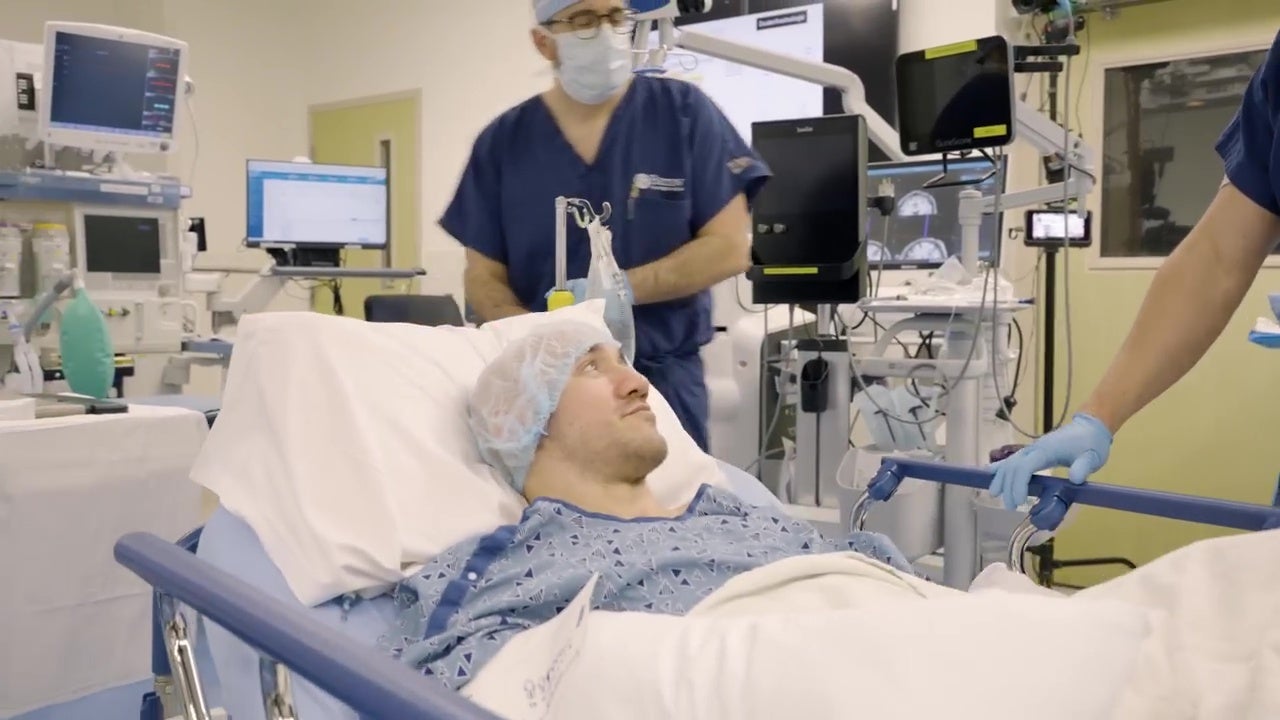‘Elon Musk planted a chip in my brain and now I can control a computer with my mind’
Musk’s first human guinea pig Noland Arbaugh, a 30-year-old quadriplegic, was fitted with a Neuralink brain implant that would allow him to activate devices with his mind. Five months on, he tells Zoe Beaty, he can play chess, text and is learning Japanese, but he still doesn’t know what it is doing to his brain...


Noland Arbaugh was face down, floating on the surface of the water when he realised he could no longer move. Up until that point, it had been a beautiful day. He and his friends had arrived at the lake, surrounded by the lush hills of northeastern Pennsylvania, hours before, ready to swim on a day off from working at a children’s summer camp.
The 22-year-old had already been in the water once but headed in with a couple of pals for a second time. At waist height, he pushed off and submerged himself into the water alongside the others, except he never surfaced. When he regained consciousness, he was already drowning. Arbaugh sensed he was paralysed, saying: “I thought, is there anything I can do? No. So what’s next? I held my breath for as long as I could, probably five or 10 seconds. Then I took a big drink of water, and that was that. I blacked out.”
He slipped in and out of consciousness while an air ambulance arrived, only fully waking up in the nearby hospital where he was rushed in for emergency surgery. Two vertebrae in his neck were dislocated and a nurse, on the phone to his mum, was instructed by Arbaugh not to tell her what had happened to him. “I just didn’t think it was worth her worrying,” he says.

It’s a telling anecdote from Arbaugh, who is gentle, generous and unassuming as he chats over a video call from his home in Arizona – a bonafide “celebrity cyborg”. Eight years after his accident which rendered him quadriplegic, in January this year, the 30-year-old Arbaugh became the first human with a brain implant built by Elon Musk’s neurotechnology company Neuralink, as part of a clinical trial, dubbed Telepathy. If successful, by decoding movement signals in the brain and translating them into commands, the implant will allow people to control devices using only their thoughts.
The device, an implantable brain-computer interface, or BCI, is a coin-sized chip surgically embedded under the skull, where it’s fed information from 64 neural threads attached to Arbaugh’s motor cortex. Essentially, the implant “learns the intention of the neurons firing close to the threads” Arbaugh explains. Within days of it being fitted, he was able to control the cursor on a computer screen using just his thoughts. The initial success, the first of its kind, made headlines around the world and five months later he feels able to share the full story of how it happened.
Since January, the link has given Arbaugh otherwise inaccessible independence, which he determinedly sought even in the first days and weeks after his four-month stay in hospital. Typically this blisteringly smart student of international studies, who had been a prolific player of sports and the tenor sax before his accident, wanted to explore every opportunity that could aid his recovery.
After the accident, Arbaugh moved back in with his parents, but it was hard. “It’s not easy being seen as a quadriplegic, after being the life and soul of the party,” he says. “I struggled with them seeing me as frail, or fragile. I would have panic attacks from things like eating and feeling worried about choking because I couldn’t help myself in that way.”
His family and a wide circle of friends provided a hardy support network around him, “planning out their schedules so there was basically always someone around. I grew up with the greatest group of friends.” In September 2023, one of those friends drunk-dialled him to tell him about the Neuralink trial. Arbaugh laughs. “He gave me a five-minute drunk rundown of what the chip and the trial was, and then helped me apply straight away over the phone. I didn’t expect anything to come from it.”
Within two days he’d received an email back from the team at Neuralink; the day after that he was interviewed. Four months later, on 28 January at 5am, he was facetiming Elon Musk from the hospital – Musk was supposed to meet him before the procedure, but reportedly had problems with his private jet, and arrived during the two-hour operation.

Arbaugh, a Musk fan, was thrilled and still slightly shocked that he was selected. He has no idea why, he says, though admits he found himself trying to “stand out as much as possible” during the selection process, making jokes and showing his enthusiasm. But there were obvious risks involved. “As a quadriplegic, all I have left is my brain. It’s one thing that I’ve thanked God for every day since my accident, that he left me with my ability to think and with my personality.
“So going in for brain surgery was something I had to think about. I accepted the risks and planned for all eventualities. I told my parents that if I came out with any sort of mental disability, I didn’t want them to take care of me – I wanted to go into a home because I didn’t want to add any more burden on them. I would never put my family through that.”
Arbaugh was also aware that this would be the first ever version of Neuralink – “the worst version of this that any human will ever get” – but wanted to set the path for others to come and believes that being the first recipient of this device was his life’s purpose for him.
“I knew from day one there was more to this than just whether this works or not,” he says.
It’s reconnected me with the outside world. My family and friends basically say that I smile more. They love the change in me
His version hasn’t been without its problems. As the weeks passed post-surgery almost 85 per cent of the threads detached from Arbaugh’s brain and had to be retooled so that he could regain control of the cursor.
And some experts have been sceptical about the safety of the device, which can only be judged on its long-term effects, raising concerns about Neuralink’s research involving monkeys, which they say caused “chronic infections, paralysis and severe psychological side effects”. Neuralink itself is also under federal investigation for potential animal welfare violations. There is still little known of what those psychological effects, or any long-term effects on Arbaugh’s brain might be, because the technology is still in very early trial stages.
But here we are. In just five months, Arbaugh says the implant has revolutionised his life. Before surgery, he used a mouth stick that he would aim and tap at his iPad to read, or communicate with friends. “It put a lot of strain on my body to be sat up for any extended period of time, and pressure on my neck from moving it constantly,” he explains. To use the stick for a day, Arbaugh risked pressure sores, spasms that could cause him to fall.”

After recovering from the implant operation, Arbaugh began “training” the neurons to react to his intentions, wondering whether his practice would pay off. To his astonishment, it was just a few days later that he first saw the cursor moving on the screen.
“I just think about where I want the cursor to go, and it goes there,” he says. In the coming months, he hopes that cursor control will extend to typing – currently he’s learning to use a “little virtual keyboard” that he can dictate to, an add-on “10 times as good” as using Siri, which would misunderstand his dictation 70-80 per cent of the time.
By March, he was playing online chess using his brain to control the computer; he’s now learning Japanese. The most important thing he’s gained, he says, is something many of us might take for granted – the ability to type as quickly as his able-bodied friends, which has made conversation possible. “I’ve been on social media recently, and able to keep up. I couldn’t do that before.”
“It’s reconnected me with the outside world,” he adds. According to his friends and family at least, he’s simply happier. “They basically say that I smile more. They love the change in me.”
Where this technology could now go is up for grabs. Musk has previously predicted that it could eventually give paralysed people the ability to walk and use their arms again. And there is a small pool of other labs now working to improve brain-computer interfaces (BCIs) – a sort of cyborg “arms” race – to reap the biggest rewards from a technology which could have far-reaching impacts.
While BCIs have so far been primarily focused on helping paralysed people control assisted devices using their thoughts, they’re certainly not limited to this area. In 2020, Harvard Business Review made predictions about the use of BCIs in the workplace as they emerge onto the mass market, forecasting scenarios where your concentration is measured in real-time.
Terrifying? Yes. But Arbaugh now shares Musk’s ambitions to push it as far as he can. He’s now talking to Neuralink about trying to find a way he could learn to draw, and wants to pursue his dream of writing a book about his journey so far, or a novel. Engaged and articulate, throughout our chat, his eyes dart around the screen a little – he’s already continually multitasking. “There’s just so much I want to do,” Arbaugh says. Time will tell whether Elon Musk will be the tech “god” who will make it happen.
Join our commenting forum
Join thought-provoking conversations, follow other Independent readers and see their replies
Comments

Bookmark popover
Removed from bookmarks